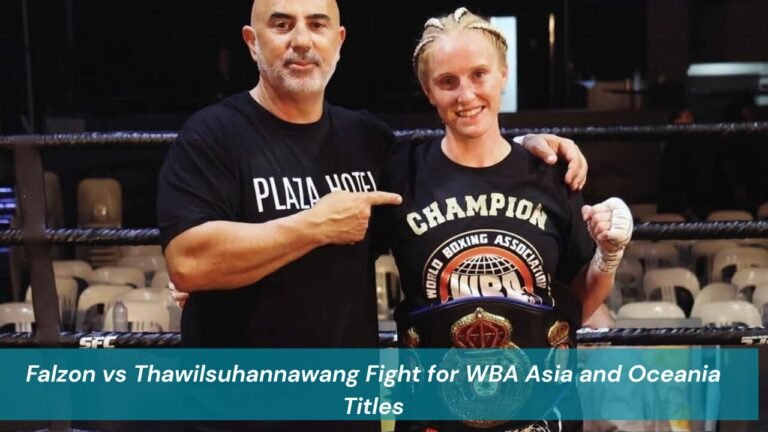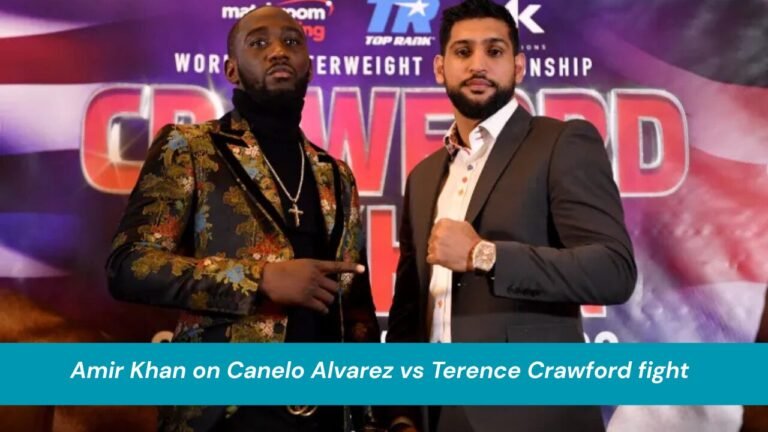Jonathan Reid’s journey from the bright lights of The Contender to the quieter rhythms of life beyond the boxing ring is a story that blends triumph, heartbreak, and reinvention. Known to fans as one of the standout personalities from NBC’s hit boxing reality show, Reid’s path has been anything but linear. Over the last two decades, he has navigated championship opportunities, personal setbacks, and career transitions with a resilience that speaks to his enduring character. In this feature, we revisit “Jonathan Reid The Contender” not just to celebrate his time on screen, but to explore the man he has become since those televised bouts first aired.
Key Takeaways
- Jonathan Reid transformed his life from a troubled youth to a professional boxer, showing resilience and determination.
- His time on NBC’s The Contender highlighted his leadership, sportsmanship, and ability to mentor younger fighters.
- Post-boxing, Reid adapted to a quieter life, finding purpose in work, family, and new hobbies despite personal and health challenges.
- His story emphasizes persistence, adaptability, and the value of second chances both in sports and life.
Early Life and the Road to Redemption
Born on October 24, 1972, in Nashville, Tennessee, Jonathan Reid’s early years were marked by both promise and turbulence. Like many young men in his community, Reid was drawn to sports, but life’s challenges quickly set in. In 1990, at the age of eighteen, he was convicted of armed robbery, an event that would land him in prison and threaten to derail his future entirely. This period, while difficult, proved pivotal. It was in prison that Reid began to seriously consider boxing as more than a pastime. His father, a guiding influence throughout his life, encouraged him to focus his energy on training and discipline rather than self-destruction. That push toward the gym laid the foundation for the career that would follow.
When Reid was released, he returned to Nashville determined to prove himself. He began competing as an amateur, building the skills that would soon earn him a spot in the professional ranks. His rise through the boxing world was not just a professional climb—it was a redemption arc, a testament to the idea that personal reinvention is always possible, even after major setbacks.
The Professional Career and Early Success
Jonathan Reid turned professional in 1996, immediately showing the kind of technical precision and conditioning that could carry him far. He quickly amassed an impressive record, starting with an incredible 27-fight winning streak. This run cemented him as one of the most promising middleweights in the United States. In 2000, his hard work paid off with a short-notice opportunity to fight William Joppy for the WBA middleweight title. Although Reid ultimately lost by ninth-round stoppage, the fight proved he could compete at the sport’s highest level. His reputation as a dedicated, skillful, and mentally tough competitor continued to grow.
Over the next few years, Reid maintained a steady presence in the boxing circuit, fighting in venues across the country. His performances were sometimes uneven, but his commitment never wavered. Each bout brought valuable experience, preparing him for the opportunity that would place him in front of a national television audience: The Contender.
The Contender Experience
When NBC announced The Contender in 2005, the concept was both novel and risky. It would blend reality television drama with legitimate boxing competition, following sixteen fighters as they trained, lived together, and faced off in the ring. Jonathan Reid was cast on the East team, bringing a veteran presence to a group of fighters hungry for exposure and opportunity. At 32, he was one of the older contestants, which made him a mentor figure to some of his younger teammates.
Reid quickly became known for his leadership and generosity. One notable moment involved him running the stadium bleachers alongside Peter Manfredo Jr. to help the latter make weight. The exertion, however, came at a cost. Shortly afterward, Reid had to face Jesse Brinkley in the ring. The energy he had expended in helping a teammate left him physically depleted, and Brinkley’s aggressive style proved too much. Reid lost by unanimous decision, eliminating him from the tournament earlier than he had hoped. Despite the disappointment, his sportsmanship and team-first mentality left a lasting impression on both his peers and the show’s audience.
The series also gave Reid a chance to interact with two very different personalities in the boxing world: Sugar Ray Leonard and Sylvester Stallone. Reid respected Leonard’s deep knowledge of the sport, but Stallone’s charisma and Hollywood storytelling brought a different kind of inspiration to the gym. For Reid, The Contender was less about winning a TV competition and more about broadening his horizons as both a fighter and a person.
Post-Show Boxing Years
Life after The Contender brought new challenges. Reid continued to fight professionally, but the momentum he once enjoyed began to fade. In the years following the show, his record dipped significantly, with more losses than wins. He went 2–16 in his final years, closing out his career with a record of 35 wins, 19 losses, and 19 knockouts. His final fight in 2015, a loss to Scott Sigmon, convinced him it was time to step away from the sport. The decision was not easy, but Reid recognized that the mental and physical demands of boxing were no longer aligning with his reality.
Even as his win-loss record shifted, Reid’s willingness to take on difficult fights and travel for opportunities reflected his dedication to the sport. He remained a professional in every sense always prepared, always respectful of the craft, and always conscious of the example he was setting for younger fighters.
Life Beyond the Ring
Transitioning out of a professional sports career can be daunting, but Reid approached the change with the same determination that had defined his boxing years. He took a steady job with UPS, valuing the stability it brought to his life. Outside of work, he found a new competitive outlet in bowling, joining a local league where his focus and friendly demeanor made him a popular presence. The shift from the roar of the crowd to the quiet thud of bowling balls was dramatic, but for Reid, it was a welcome change of pace.
Life also presented personal trials. In 2020, he was diagnosed with prostate cancer, a challenge that demanded both physical and emotional resilience. Around the same time, he suffered the loss of his father, followed by the death of his sister. These events brought Reid back to Nashville, where he moved in with his mother to provide care and support. Through it all, he maintained his sense of humor and his commitment to living fully, even in the face of adversity.
A Legacy of Resilience
Jonathan Reid’s story is not one of unbroken triumph, but rather of persistence, adaptability, and self-awareness. From his troubled youth to his rapid rise in the boxing world, from the bright lights of television to the quieter satisfaction of a bowling alley, Reid has lived many lives in one. Each chapter of his journey carries its own lessons: the value of second chances, the importance of community, and the necessity of knowing when to move on.
For fans of The Contender, Reid remains a memorable figure—not just for his skill in the ring, but for the dignity and generosity he displayed under pressure. For those who have followed his post-boxing life, he is a reminder that identity and purpose can evolve long after the final bell.
FAQs
Who is Jonathan Reid and why was he on The Contender?
Jonathan Reid is a former professional middleweight boxer from Nashville, Tennessee, best known for appearing on NBC’s The Contender in 2005. He was selected for his impressive record, his experience, and his compelling personal story.
How did Jonathan Reid perform on the show?
Reid was placed on the East team and became a respected leader among the fighters. He was eliminated after losing to Jesse Brinkley in a unanimous decision.
What was Jonathan Reid’s boxing record?
He retired with a professional record of 35 wins, 19 losses, and 19 knockouts.
What is Jonathan Reid doing now?
Reid works for UPS, participates in a local bowling league, and lives in Nashville with his mother.
What challenges has Reid faced outside the ring?
In recent years, Reid has battled prostate cancer and coped with the loss of close family members, yet he continues to focus on living with resilience and positivity.
Conclusion
Jonathan Reid’s career arc from promising young fighter to The Contender veteran to a man rebuilding life outside the ring offers a blueprint for perseverance. His experiences remind us that a person’s worth is not defined solely by victories, but by how they handle defeats and adapt to change. Reid’s journey, with its strikes and gutters, is one worth remembering.




